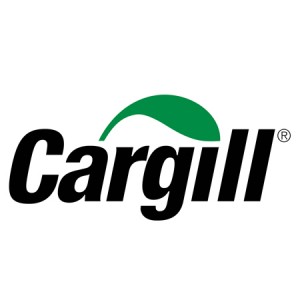Cargill has been listed on Fortune’s first ‘Change the World’ list, which recognizes the top 51 companies that have made a sizable  impact on major global social or environmental problems as part of their competitive strategy. Fortune said that the goal of the list is to “shine a spotlight on instances where companies are doing good as part of their profit-making strategy, and to shed new light on the power of capitalism to improve the human condition.”
impact on major global social or environmental problems as part of their competitive strategy. Fortune said that the goal of the list is to “shine a spotlight on instances where companies are doing good as part of their profit-making strategy, and to shed new light on the power of capitalism to improve the human condition.”
Two hundred companies were nominated by editors of Fortune and FSG, a non-profit social impact consulting firm who reached out to dozens of business, academic and nonprofit experts worldwide for their recommendations. Editors at Fortune then reviewed the companies and ranked the top 51. Four criteria were taken into consideration: Business innovation, measurable impact at scale on an important social challenge, the contribution of shared value activities to the company’s profitability and competitive advantage and the significance of the shared value effort to the overall business.
Cargill was nominated for its pioneering efforts to curb malnutrition in India by fortifying its edible oils with vitamins A and D. India is home to 194 million malnourished people of which 40 per cent are children. Cooking oil is a staple product found in almost 99 per cent of homes. Cargill’s decision to fortify its edible oils in 2008 is largely seen by the industry as the catalyst for the oil fortification trend in India.
Siraj Chaudhry, CEO of Cargill Foods India said: “We are constantly looking at innovating our products, solutions and services to better meet the needs of our customers. Back in 2008, we saw the potential of fortifying our leading brands of edible oils –NatureFresh and Gemini ; to bring a better product to the market and help nourish the millions of people suffering from malnutrition with the vitamins they desperately needed. We are glad that the industry thereafter acknowledged the need for oil fortification and that we triggered such a positive change.”
Operating responsible and sustainable supply chains
On top of producing safe and wholesome food, Cargill is focusedon respecting people and human rights; treating animals humanely; promoting responsible agricultural practices; and reducing its environmental impact. The company has also been at the forefront of improving smallholder farmer livelihoodsaround the world.
§ ‘Cargill’s Cocoa Promise’ is improving the livelihoods of more than 115,000 cocoa farmers, their families and communities in Brazil, Cameroon, Côte d’Ivoire, Ghana and Indonesia. The program includes technical training and demonstration farms for farmers, as well as sustainability certification for their cocoa. Farmers’ incomes are being raised, including $44 million of premiums paid to farmer cooperatives for certified sustainable cocoa since 2009, half of which is paid directly to their farmer members.
§ In its palm oil supply chain, Cargill has presented $1.98 million in RSPO and International Sustainability and Carbon Certification (ISCC) premiums to smallholders in South Sumatra, Indonesia, since 2011, including $1 million to 8,800 smallholders from 18 cooperatives in 2014 for the oil palm they grew as part of Cargill’s PT Hindoli oil palm plantation. This is in addition to Cargill providing free medical clinics, free day care for children, providing local schools, book mobiles and training for its employees.
§ Cargill also has played a key role in reducing deforestation in Brazil through their Soy Moratorium. The program is credited for reducing deforestation in the Amazon from agriculture by 80%.
Given Cargill’s broad presence in food and agriculture, the company believes it has a fundamental responsibility for its environmental and social impact. It recently released its 2015 Corporate Responsibility report which recounts its efforts to create more sustainable supply chains and to increasefood security while protecting the environment.
###




